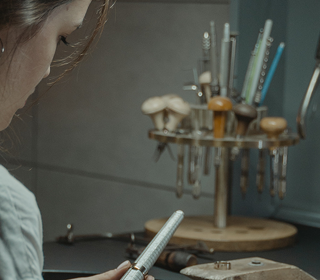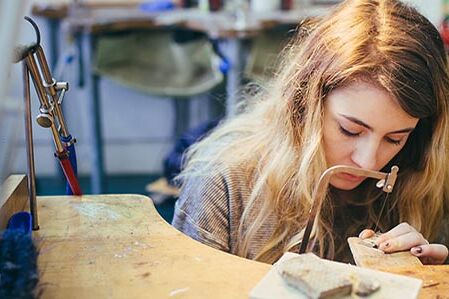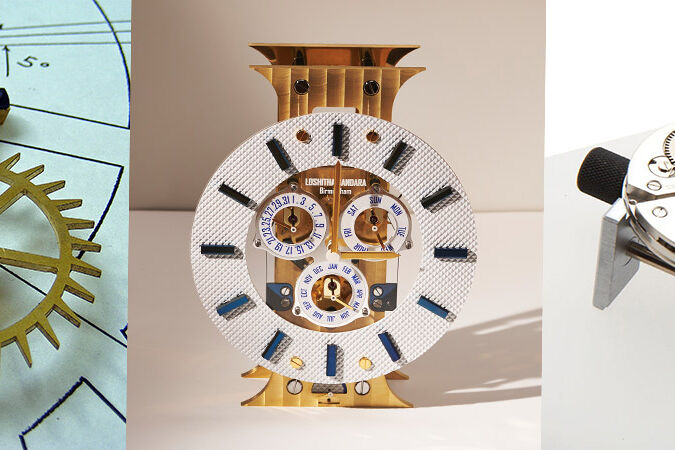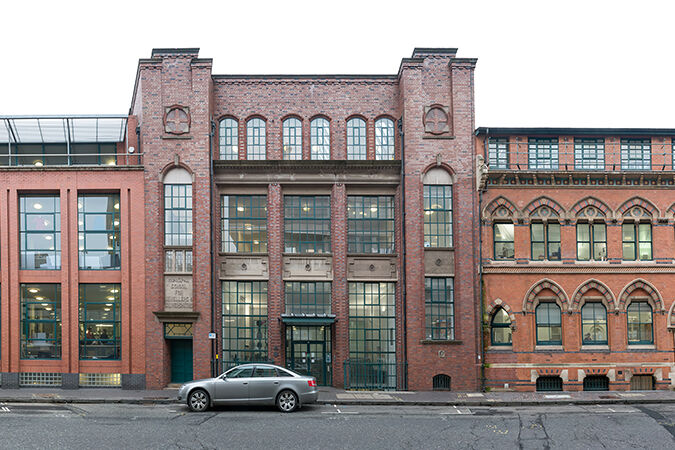
Blog Article

Are you wondering what equipment you’ll need to start making jewellery? Once you have the basics, the possibilities are endless! Here are our recommendations for the tools every jeweller needs.
Top tip: Buy the best quality you can afford from a reliable tool source. Our experience shows that poor-quality tools don’t last and can damage your work.
Jewellery Pliers
Having a set of jewellery pliers is a great place to start. Some of the essentials you should have in your kit are round nose (sometimes called chain) pliers, flats, snipes, parallel and half-round ring-bending pliers. They will help you to grip and bend metal without leaving ridges, create loops, clasps, curves and much more!
Many of the tool companies in the Jewellery Quarter provide student pliers kits which contain the essentials, often including…
Jeweller’s Shears
Jeweller’s shears are another great basic tool. They’re used for cutting sheet metal and pallions from solder strips and are also useful for roughing out material in thinner sheets.
Jeweller’s Saw
A jewellers saw uses fine blades to cut metal and other materials. The blades are specific to the material, so you can choose specific blades for metal, wax or other materials. It’s best to get an adjustable saw frame as this can use shorter blades, saving you money. If you want to buy blades at the same time, we recommend buying 12 packs of 12 2/0 sawblades.
Caliper Gauge or Vernier Gauge
When making jewellery, it’s so useful to have a versatile caliper gauge to make accurate, internal, external and depth measurements. These can be manual or digital and the advantage of the manual gauge is that the batteries never run out!
Tweezers
Tweezers are an essential part of your kit as they are great for handling your precious gems and designs when you’re soldering. Be aware that gemstone tweezers and soldering tweezers are very different. As a beginner, we’d suggest avoiding spring tweezers as they can damage hot metal.
Practice Materials
Practice materials are so handy to have so you can test, practice and experiment without wasting valuable metals. Base metal (copper or brass) will help you get a feel for things as you’re starting out. There are scrap metal buckets all over the School of Jewellery and we encourage students to take materials from these to practice with.
Files and Polishing Papers
A set of files is used to shape and smooth excess materials or solder on your pieces. Polishing papers are a necessity to bring your design to a high shine by working up through the coloured grades. We would suggest that you don’t buy these until you’ve spoken to your tutor as they’ll let you know exactly what you’ll need, but you can’t go wrong with a 2-cut-half-round ring file.
Anvil and Bench Peg
An anvil and bench peg are an essential part of setting up your workbench to start making jewellery. It provides an even, flat steel surface for hammering and supporting your jewellery when sawing, filing, cutting and more. The benches in the School of Jewellery are already fully-equipped but these two-piece tools allow you to turn any table into a jewellery bench for practicing at home.
Always remember, tutors are on hand to guide you in selecting the tools you will need and the Jewellery Quarter has a wealth of tool and material suppliers for you to choose from.




